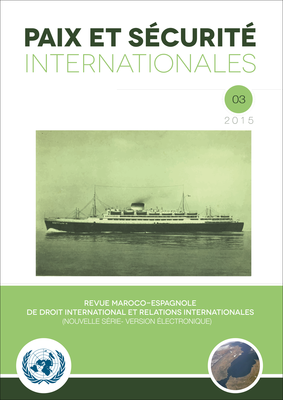Moroccan-Brazilian Bilateral Cooperation: Achievements and Prospects
Abstract
Abstract. Nowadays south-south cooperation has become increasingly important as a framework that shape international cooperation. The search for benefi cial economic relations has encouraged many developing and emerging countries to embark into a preferential set of relations through their economic actors. The aim is to boost trade and enhance investment through joint ventures operations in key economic activities deemed crucial to accelerate growth and create new jobs opportunities.
Moroccan-Brazilian relations represent to some extent an example of this type of cooperation. Both countries enjoy high growth potential and hold prominent positions within their respective regions.
In spite of increased trade between Morocco and Brazil, their relations have not reached yet its potential. Brazil’s tremendous natural resources and the size of its market make it a potential trading and investment partner for Morocco. Whether in primary production (agriculture, energy), or in industrial production, Brazil holds signifi cant competitive advantages. Therefore, Brazil could serve as a source of imports at competitive prices, while offering Morocco a platform to enhance its exports. Brazil’s regional position could serve Morocco as a gate to the wide market of Latin America, particularly the Mercosur member countries.
Keywords: South-South cooperation, Morocco, Brazil, international trade, investment, emerging economies, joint ventures.
Downloads
How to Cite
License
Copyright
Es condición para la publicación que el autor o autores ceda(n) a la Revista, en exclusiva, los derechos de reproducción. Paix et Sécurité Internationales es una revista que proporciona un acceso abierto inmediato a su contenido totalmente gratuito para lectores como para los investigadores que pretendan publicar en ella, ya que no se realizan cobros por concepto de envío, procesamiento ni publicación. Los usuarios podrán leer, descargar, copiar, distribuir, imprimir, buscar o enlazar el texto completo de los artículos publicados, o utilizarlos para cualquier otro propósito, dentro de la legalidad vigente. Y podrán hacerlo sin coste alguno, y sin necesitad de solicitar permiso al editor a al autor. Todo ello de acuerdo con la definición de acceso abierto de la Iniciativa Acceso Abierto de Budapest.






